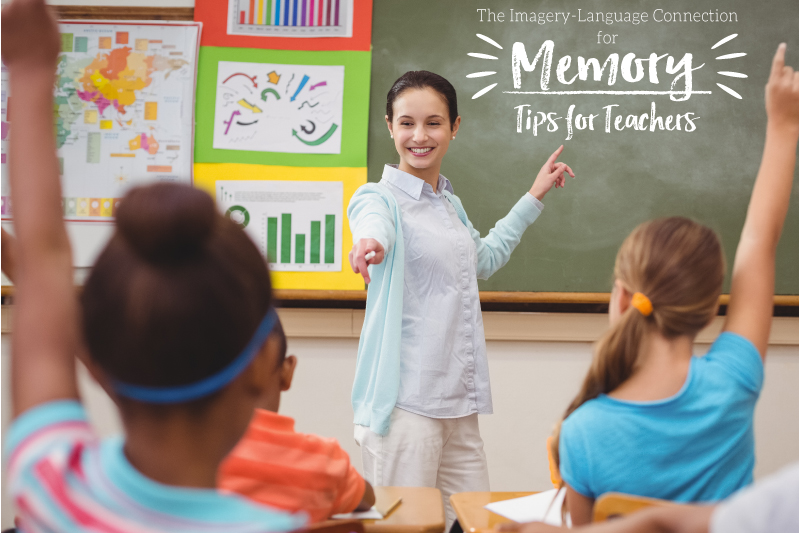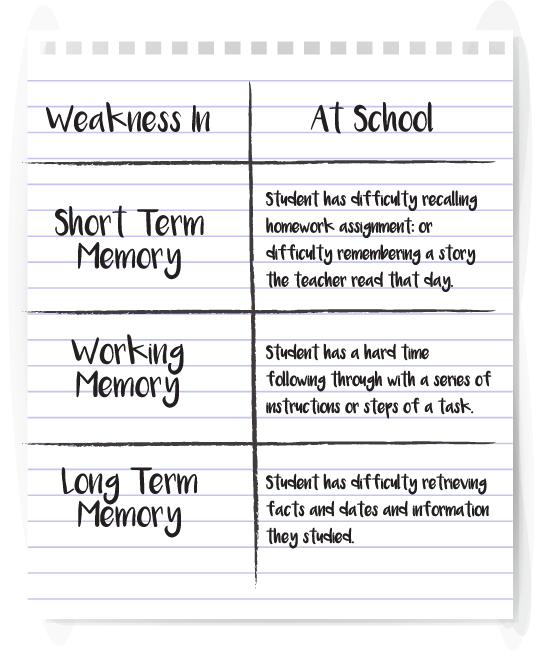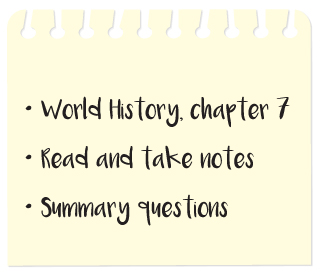[Article] The Imagery-Language Connection for Memory: Tips for Teachers
Nearly all the volumes written on memory include references to imagery. Memory is often referred to as a mental impression. When we remember something, we access a mental representation of it.
-Nanci Bell, Visualizing and Verbalizing for Language Comprehension and Thinking
Students are expected to learn new information, in topic areas they may or may not be interested in, every day. Students then need to hold on to all these new things they are learning, and use the information in context. Unfortunately, students may lack the memory skills critical for school success. Note how weak memory skills can affect student performance:
Many students with weak memory have difficulty creating mental images for language. This weakness causes individuals to get only “parts” of information they read or hear, but not the whole. Students with weak language comprehension can seem like they are just not trying, or that they are distractible. In fact, they may be trying very hard to memorize everything they have heard or read. And they need help.
Teachers can develop their students’ memory by using language that connects to what they visualize. Check out our tips for helping your struggling students and the whole class remember what they are learning:
Imagine Homework
Student planners, teacher web pages or weekly newsletters often look to us like they have everything needed to complete an assignment. Yet day after day, there are those students who somehow missed the message. For example, a student may copy the following into her day planner from the board:
However, if the student was not visualizing the assignment as the teacher discussed it, she may be unsure whether or not the teacher expects written responses to the questions. Or, she may have even gone home without her World History book! Make sure your class understands the directions for every assignment. Ask your class, “What does that look like?” or “What do you picture for that?” to help them create imagery for each task.
Imagine Vocabulary
Teachers can use language that stimulates imagery when lessons include new, essential vocabulary. For example, during a lesson on photosynthesis, ask questions like, “What are you picturing for what the sunlight is doing?” and, “What do you see happening?”
To commit new terms to memory, flashcards are a great tool for practice that you can send home or use in groups. Have students write the word on one side of the card. The other side should include the definition, a hand drawn picture, and a brief sentence using the word in context. During practice, use language that prompts her to draw on her images. Instead of, “Do you remember the steps of photosynthesis?” ask, “What are you picturing for photosynthesis?” and “What do you see happening next?” If a term is unstable, flip over the card for her definition and drawing to discuss. Create piles for “fast,” “medium,” and “slow” cards to help focus practice sessions.
Teachers are developing imagery and memory when they ask students to verbalize their images from a previous lesson, or a reading assignment. This also helps students experience how imagery helps them remember.
Imagine Facts
You can teach students to image and recall maps, names, dates, and numerals with the help of air-writing or air-drawing to establish imagery. Some examples:
Imagery for a Map
You can use language to help students connect with the visual image of a map you are introducing (e.g. an outline of the continent of Africa). Start by having your students look at a simple map together and describe what they see. Take it away and have your students visualize the map, and call on students to verbalize what they are seeing as they air-draw it, “It is large on top, like this. . .” Show your students the map again and discuss any key shapes or landmarks. A thorough orientation like this is an excellent precursor to drawing maps with paper and pencil.
Imagery for Symbols
Memorizing important dates, formulas and more is easier when you have students visualize, verbalize and air-write the information. For example, if students are using flashcards to study chemical formulas, have them write the name of the compound on one side of a card and the formula on the other, for example, carbon dioxide → CO2 H.
To memorize, have students read the name of the compound and formula aloud: “Carbon dioxide, CO2”. Cover the card and have students visualize and verbalize the formula as they write it in the air with their finger, as if on an invisible chalkboard: “CO2”.
Let them check the stimulus to see if they got it right.
___________________________________
Imagery is key to accessing our memory for information. If you have students with weak concept imagery—the ability to create an imagined gestalt (whole) from language, you may want to explore the Visualizing and Verbalizing Program. The development of concept imagery improves reading and listening comprehension, memory, oral vocabulary, critical thinking, and writing. Find the Visualizing and Verbalizing Teacher Workshop Schedule here.









